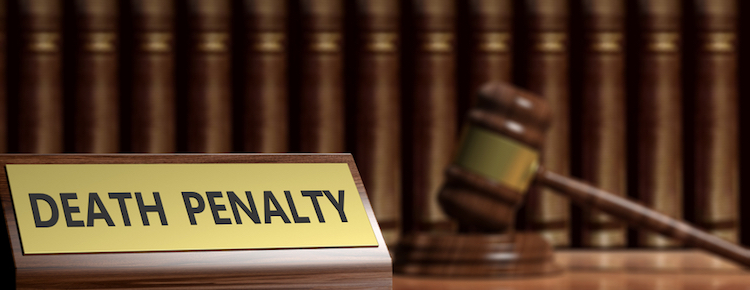Judge blocks 4 federal executions, rules DOJ protocol doesn't follow law

Image from Shutterstock.com.
A federal judge in Washington, D.C., has halted the U.S. Department of Justice’s plans to resume executions after a 16-year hiatus.
U.S. District Judge Tanya Chutkan issued a preliminary injunction Wednesday, report the Washington Post, Politico and the New York Times.
She ruled on behalf of four federal death-row inmates who sought to delay their executions while courts considered their claim that the government’s execution plan conflicted with federal law.
Chutkan said the prisoners were likely to succeed on their claim that the government exceeded its authority under the Federal Death Penalty Act.
The DOJ has adopted a new protocol calling for use of a single drug, pentobarbital, in all federal executions. But the Federal Death Penalty Act requires the federal government to follow the manner of execution used by the sentencing state, Chutkan said.
Specifically, the law requires a U.S. marshal to “supervise implementation of the sentence in the manner prescribed by the law of the state in which the sentence is imposed.” In states without the death penalty, courts may designate another state as the guide, the law says.
The government said the law gave states the authority to decide whether to use a lethal injection method or an alternative in federal executions but not the authority to decide additional procedural details.
“The court finds this reading implausible,” Chutkan wrote.
The DOJ had previously adopted a three-drug protocol in 1993, before passage of the Federal Death Penalty Act. U.S. Attorney General William Barr had proposed the three-drug protocol when he previously held the position.
After the Federal Death Penalty Act was adopted in 1994, the DOJ supported bills to amend the law to create a uniform method of federal execution, but the bills did not pass.
Chutkan noted the failed effort and said there is no statute that gives the Federal Bureau of Prisons or the DOJ the authority to establish a single implementation procedure for all federal executions.
Chutkan ruled in the cases of four men facing December and January executions: Daniel Lewis Lee, Wesley Ira Purkey, Alfred Bourgeois and Dustin Lee Honken. The 9th U.S. Circuit Court of Appeals at San Francisco halted the execution of a fifth inmate last month.
Lawyer Shawn Nolan represents one of the men facing execution.
“This decision prevents the government from evading accountability and making an end-run around the courts by attempting to execute prisoners under a protocol that has never been authorized by Congress,” Nolan said in a statement. “By granting the preliminary injunction, the court has made clear that no execution should go forward while there are still so many unanswered questions about the government’s newly announced execution method.”
Only three federal inmates have been executed since reinstatement of the death penalty in 1988, according to the New York Times. One of the executed men was Oklahoma City bomber Timothy McVeigh.



